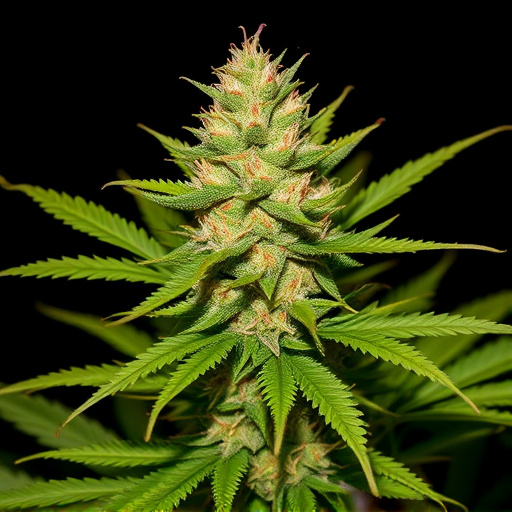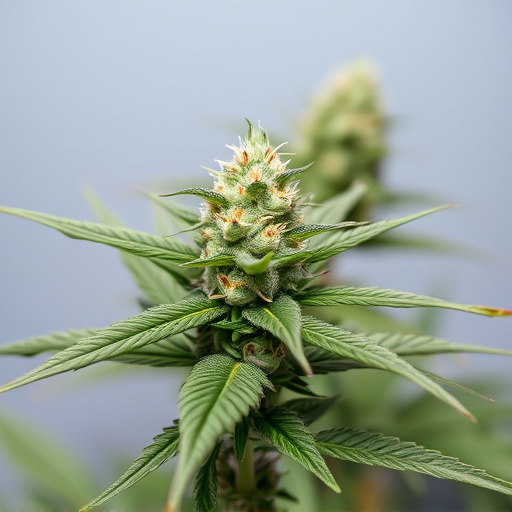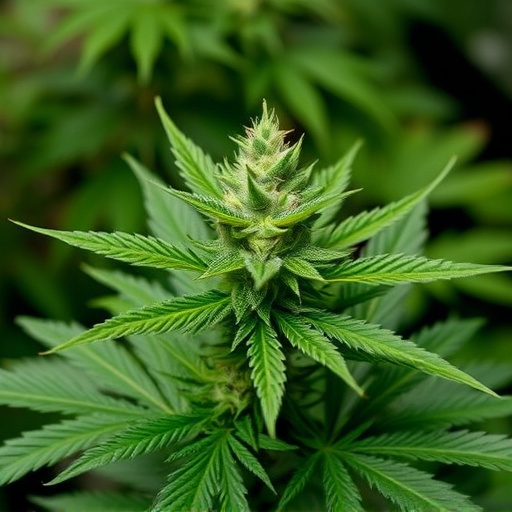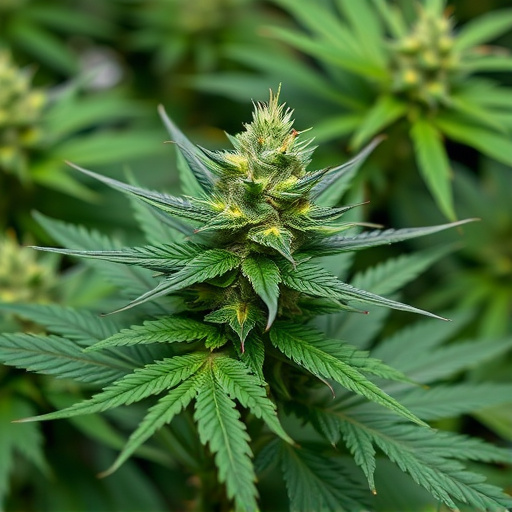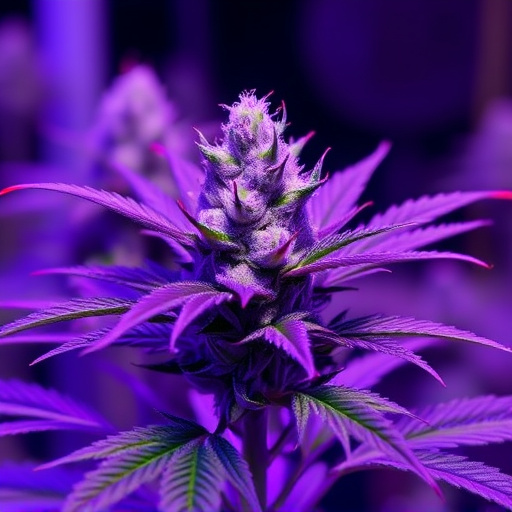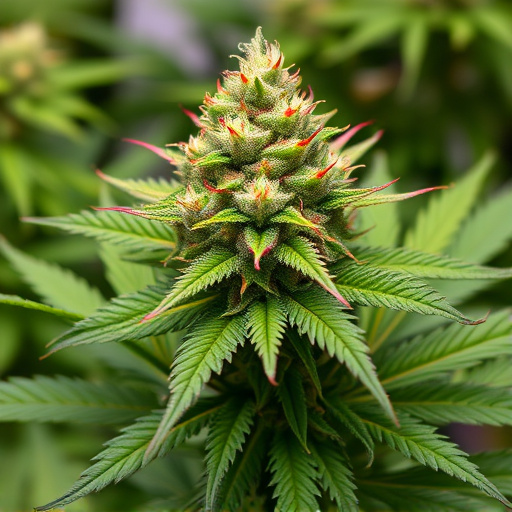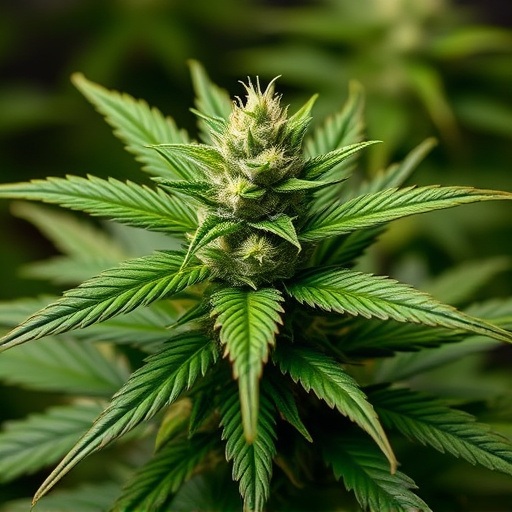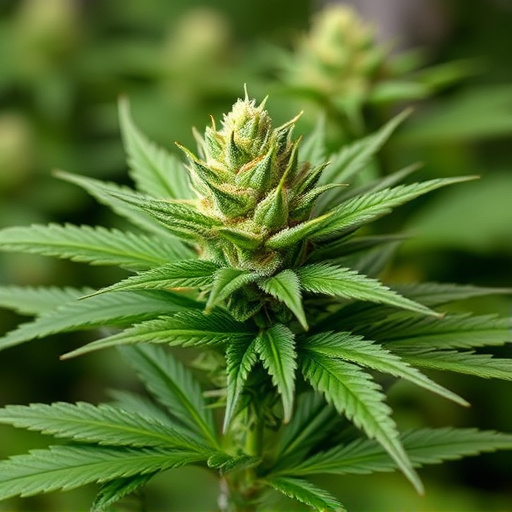High CBD cannabis strains are gaining prominence in medicine due to their potential therapeutic benefits, offering a subtle yet effective alternative to traditional pharmaceuticals. These strains, characterized by elevated cannabidiol (CBD) levels, have shown promise in managing conditions like epilepsy, chronic pain, anxiety disorders, and more, without compromising cognitive function or causing side effects associated with tetrahydrocannabinol (THC). With low THC content, they provide targeted treatment options, interacting with the body's endocannabinoid system to reduce inflammation and modulate pain perception. Scientific research highlights their anti-inflammatory and anxiolytic properties, making them a game-changer in alternative healthcare solutions.
Cannabis flower, especially high CBD (cannabidiol) strains, has emerged as a potent therapeutic tool in modern medicine. This natural compound offers a wide range of potential benefits for various medical conditions. From managing chronic pain and reducing anxiety to its anti-inflammatory properties, high CBD cannabis strains are paving the way for innovative treatments. This article explores these strains’ unlocking of potential therapeutic benefits, delving into specific applications and the science behind their efficacy in medicine.
- High CBD Cannabis Strains: Unlocking Potential Therapeutic Benefits
- Navigating Medical Applications: Conditions and Treatment Options
- The Science Behind CBD's Efficacy in Medicine
High CBD Cannabis Strains: Unlocking Potential Therapeutic Benefits
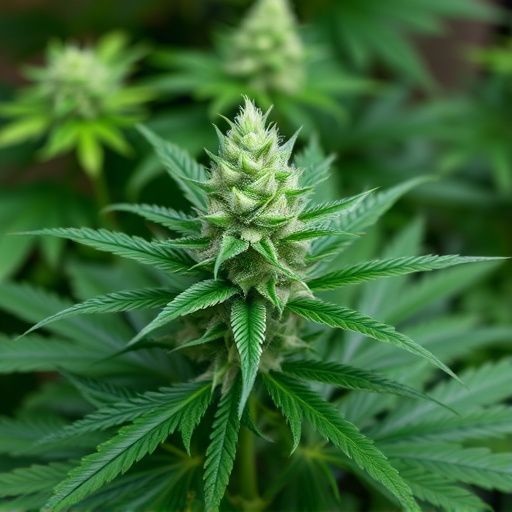
High CBD cannabis strains have gained significant attention in the medical community for their potential therapeutic benefits. These strains, characterized by elevated levels of cannabidiol (CBD), offer a promising alternative to traditional pharmaceuticals for managing various health conditions. Unlike their counterparts with high tetrahydrocannabinol (THC) content, which induce psychoactive effects, high CBD strains provide a more subtle experience, focusing on the medicinal properties of CBD.
Research suggests that CBD possesses anti-inflammatory, analgesic, and anxiolytic properties, making it beneficial for conditions such as epilepsy, chronic pain, and anxiety disorders. High CBD cannabis strains enable precise dosing and targeted treatment without compromising cognitive function or causing the side effects associated with THC. This has opened doors to exploring novel therapeutic avenues in medicine, positioning high CBD strains as a game-changer in the realm of alternative healthcare solutions.
Navigating Medical Applications: Conditions and Treatment Options
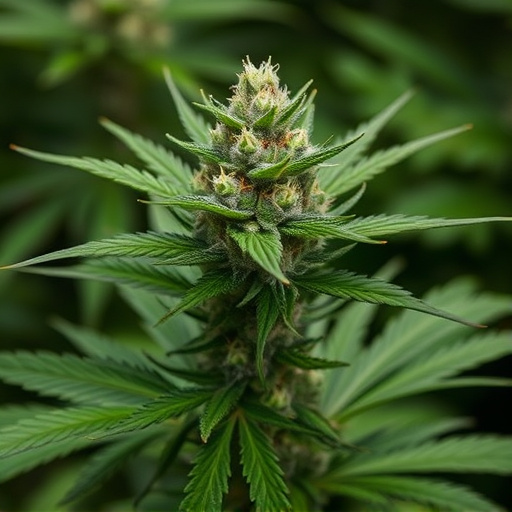
Navigating the medical applications of cannabis involves understanding a wide range of conditions and treatment options. High CBD cannabis strains have emerged as game-changers in medicinal use, offering potential relief for various ailments. These strains are particularly sought after for their low THC content, which reduces or eliminates the psychotropic effects often associated with cannabis, making them suitable for individuals seeking therapeutic benefits without mental disorientation.
Conditions such as chronic pain, inflammation, epilepsy, and anxiety have shown response to high CBD cannabis treatments. Studies suggest that certain compounds in these strains can interact with the body’s endocannabinoid system, modulating pain perception and reducing inflammation. Moreover, some patients report significant improvements in managing symptoms associated with post-traumatic stress disorder (PTSD) and multiple sclerosis (MS). High CBD strains are also explored for their potential in promoting better sleep quality and appetite regulation.
The Science Behind CBD's Efficacy in Medicine
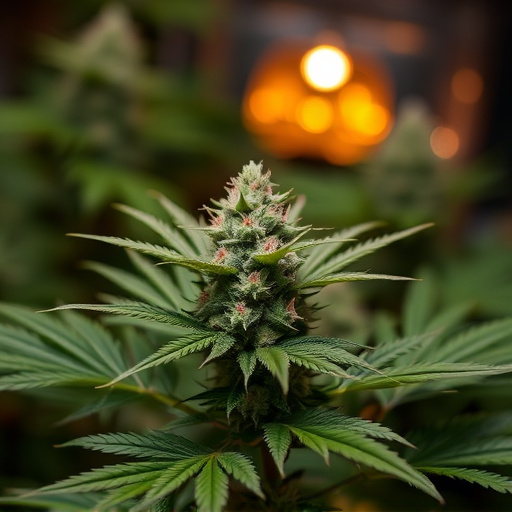
The medical potential of cannabis has sparked significant interest, particularly with the rise in popularity of high CBD cannabis strains. The key compound of interest here is Cannabidiol (CBD), a non-psychoactive cannabinoid found in abundance in these plants. Scientific research has delved into understanding how CBD interacts with our bodies’ endocannabinoid system (ECS), which plays a vital role in maintaining homeostasis, or balance.
Studies suggest that CBD’s efficacy in medicine may stem from its ability to bind to and activate certain receptors in the ECS. One key receptor is CB2, primarily found in immune cells, suggesting potential anti-inflammatory properties. Additionally, CBD has shown promise in managing anxiety and pain, conditions often associated with chronic inflammation. High CBD strains, therefore, offer a natural approach to treating these ailments, providing an alternative option for those seeking relief without the psychoactive effects of traditional cannabis.
The potential of high CBD cannabis strains as a therapeutic tool is undeniable, offering promising treatments for various medical conditions. Navigating the diverse applications of cannabis in medicine requires understanding the science behind its efficacy, especially the role of CBD. As research continues to uncover more about this remarkable plant, it’s clear that high CBD cannabis strains are here to stay as a game-changer in healthcare, revolutionizing treatments and improving lives.

